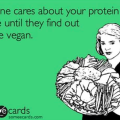“How wonderful it is that nobody need wait a single moment before starting to improve the world.” – Anne Frank
If you’re an animal rights activist, chances are you want to do everything you can to help animals. Maybe you’re a college student, you don’t have a car and you’re constantly broke. Maybe you’re a parent, maybe you work long hours, but where there is a will there is a way. Here are my top ten suggestions for being an effective animal rights activist.
1. Go vegan. Veganism is the essential starting point in being an animal activist. Being vegan is the least that a person can do because as an animal activist you should not be purchasing produces that use animals. Remember, animals are not here for us to use. If you’re vegan, you’re boycotting animal cruelty and showing that another way of life is possible. A helpful site in going vegan is veganstarterkit.com.
2. Get involved with local animal rights groups. Connecting with groups in the area is important because this gives you the opportunity to learn about what’s going on in your community. Learn what’s going on in your area or even areas that you’re visiting. For instance, this winter I’ll be spending some time in San Antonio. You know what’s in San Antonio? SeaWorld! You know who is going to be there? Me! Also, it’s just nice to meet like-minded people.
3. Protest. Sometimes people are not comfortable protesting. It’s understandable. It is a very powerless feeling to see protesters getting arrested. If you’re not comfortable participating in civil disobedience, you don’t have to. However, free speech is [supposed to be] a guaranteed right, so what is stopping you from holding a sign or passing out leaflets? In certain cases, you will need a permit and sometimes the city will not grant you a permit. This happens a lot and it’s an unfortunate situation when they won’t allow you anywhere near the premises. Standing on an island of land in the middle of a highway isn’t the ideal place for a demonstration. Find a legal, visible place and you have done what you can.
4. Wear it on your sleeve. This is really an opportunity to be creative here. I have met many activists that have gone so far as to tattoo “vegan” on their body, which is great and kind of a statement to the world that being vegan is for life. But it could be something as simple as a pin on your backpack. While standing in line to get a coffee, I often have people ask me about the pins on my backpack. One pin reads, “Ask me why I’m vegan,” which is an open invitation for the person to start a conversation with you. You will, of course, once in a while get a couple of negative comments but…sticks and stones, you know? 😉
5. Be vocal. If someone notices your “Ask me why I’m vegan” pin on your backpack, really take the time to tell him or her why. My grandmother casually brought up the idea that she believes animals have souls. Despite what your own personal views are on souls, question the idea that animals can have souls and wonder aloud how that affects their life. Your friend claims to be an animal lover? Ask him or her why they consume animals. Suggest vegan alternatives to things that they already love.
6. Leave a trail. Something I would commonly do while I was in college was bring vegan cupcakes to class. If I had a presentation, I always saw it as a perfect opportunity to bring in vegan baked goods. Hey, everyone wins here because who can turn down baked goods? Also, I always make sure that I have some vegan literature on hand. If you find literature that seems to contradict what you personally believe, what is stopping you from making your own pamphlets? Knowledge is power and you won’t change your view of the world if you don’t think that there is anything wrong with it. Inform people!
7. Watch your mouth. Having issues with cops? Don’t call them “pigs.” Are you mad at a female? Don’t call her a “bitch.” It’s important to realize that language is important. Language can be speciesist in the same way that it can be sexist, racist, homophobic…Don’t buy into that and remember that oppression is often linked to other forms oppression.
8. Know what you’re talking about. To put it simply, read. Read as much as you can. Make a wish list of animal rights literature and get cracking. Read about past activists, read about the animal rights movement, learn about factory farming, learn about the lives of animals, and even learn the arguments that go against what you personally believe. If you’re short on cash, go to your local library and see what they have to offer. If the options are slim, request some books at the library or donate books that you have at your house that you feel would be beneficial for others to read. You’re an opinionated person; chances are you are going to come across some material that you might not agree with. It is still worth your time.
9. Solidarity! Support political prisoners: For the people that do feel comfortable in taking part in civil disobedience, sometimes they’re stuck doing time. As we’ve seen in the past, people have been put in prison for years for non-violent actions that help animals or hurt corporations that harm animals. You can support political prisoners by sending money to their commissary (so many vegan prisoners that I have spoken to have claimed that their diets in prison consist primarily of beans and rice). Letters and books are also greatly appreciated. Often times, on their support page you will find a book wish list.
10. Be serious, not offensive. Unfortunately, there is a lot of negativity that comes from within the animal rights movement and it’s only fair to acknowledge that (especially if we wish to change it). Unfortunately, the animal rights movement has been known to use sexism and fat shaming quite often. This is never okay, especially if we’re working towards a better world. Slogans that say that fat bodies need to be eradicated are never okay—what really needs to be eradicated is fat hatred. Being vegan has nothing to do with being a “skinny bitch,” after all. No matter what size they are, what gender they identify themselves as, their sexual orientation, age, class, race, there is no ideal vegan. To be a vegan requires dedication and compassion, veganism is for everyone.
I really hope that this information is helpful for aspiring activists. Being an activist means that you will often find yourself short on cash and sometimes burnt out. The fact of the matter is that you have taken on more than you can chew; you live in a society where people see non-human animals as property. Don’t let it discourage you, it’s not all on you because there are tons of compassionate individuals just like you—you just have to be there for each other.
 About The Author: I am a native of Washington State, and even though I have been living outside of Boston the past three years, I will always be a Washingtonian at heart. I’m a recent graduate of English and Philosophy. I’m still trying to figure out what I want to do when I grow up and how to get “there.” In my spare time I read, work on my vegan baking skills and write on postcollegeprogression.
About The Author: I am a native of Washington State, and even though I have been living outside of Boston the past three years, I will always be a Washingtonian at heart. I’m a recent graduate of English and Philosophy. I’m still trying to figure out what I want to do when I grow up and how to get “there.” In my spare time I read, work on my vegan baking skills and write on postcollegeprogression.









No Comments